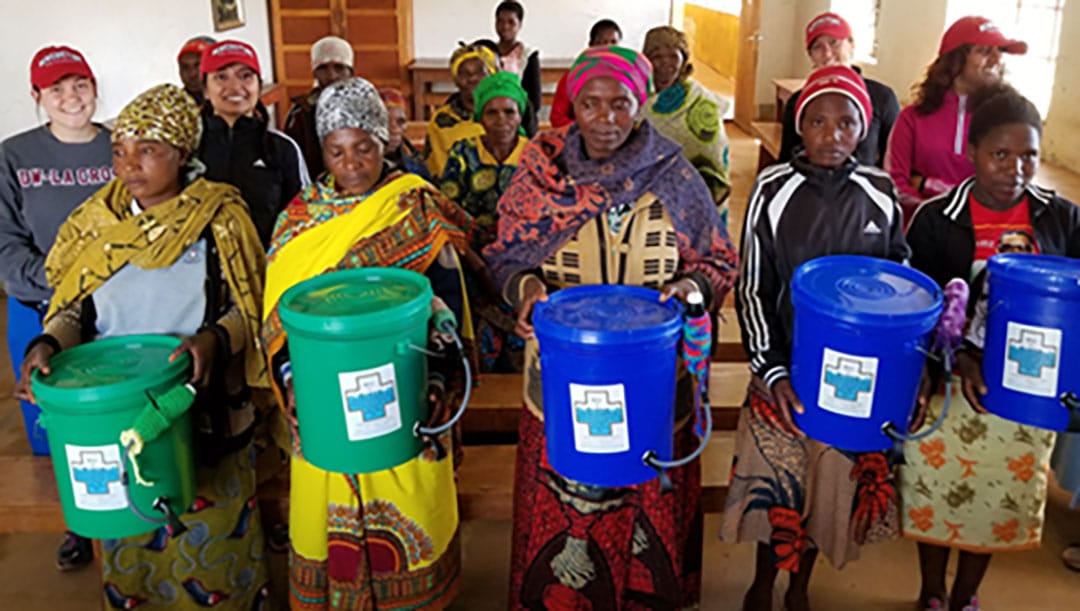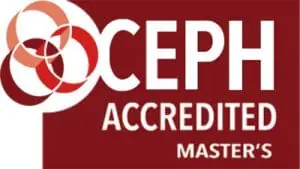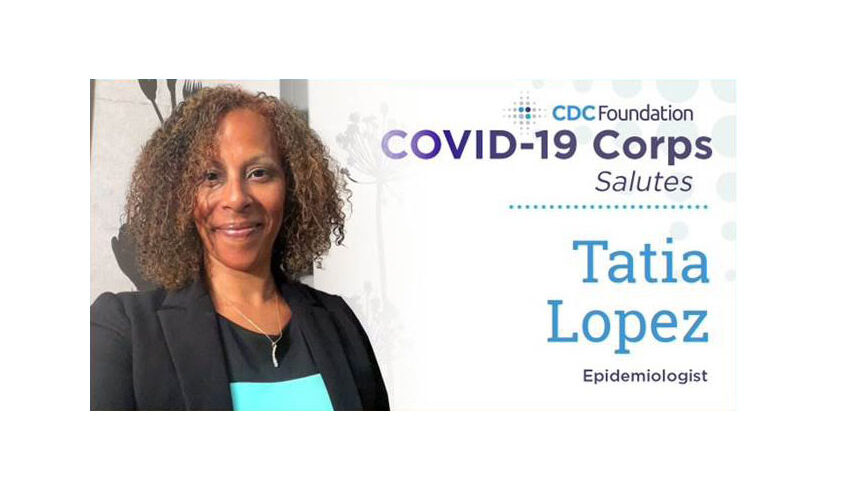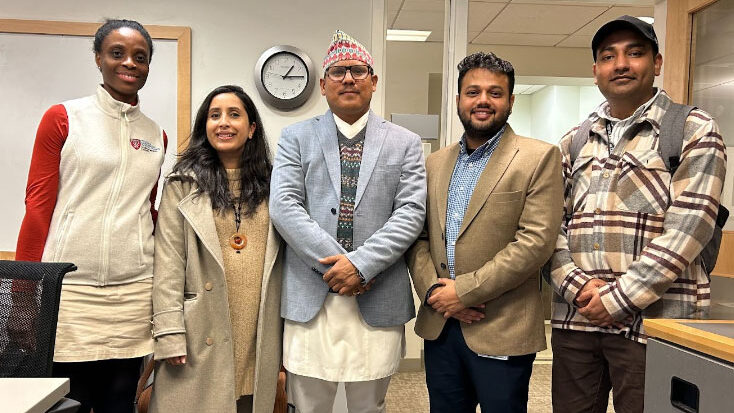Application Requirements
Application requirements are listed here. Click here to submit an application today!
The mission of the MPH program at Benedictine University is to provide a high quality, competency-based, and accessible educational experience. Click here to explore the competencies that equip MPH graduates for success.
Program Curriculum
MPH students must complete 43 semester credit hours to graduate. All students take 7 core courses covering basic public health competencies (21 credit hours). Students individualize their programs with the selection of 5 electives which can be geared towards obtaining a Certificate in a focus area (15 credit hours). All students demonstrate their ability to synthesize and integrate all acquired competencies in a capstone course (3 credit hours) and an internship in an actual public health setting (4 credit hours). Click here to see the full MPH curriculum.
All courses in the MPH program are focused on developing evidence-based knowledge and skills for work in the public health arena. Seven core classes provide a solid foundation in major areas of public health and are followed by a capstone course focused on applying knowledge in community health. Certificates offered in Data Analytics, Epidemiology, Health Education and Promotion, Health Management and Policy, and most recently in Nutrition can provide focus for professional direction. An internship at the end of the program in a professional site of your choice helps students gain valuable experience and practice.
Click here for a description of all MPH courses
Benedictine offers a variety of certificate programs that allow you to gain more in-depth knowledge in various fields. Certificates can be completed on their own, or while pursuing the Master of Public Health program. All certificates can be completed within one year, even while taking only one asynchronous 8-week course at a time. The MPH program offers the following certificates:
Data Analytics Certificate
This certificate trains students in statistical methods commonly used in public health efforts to inform and improve initiatives through data-driven evidence. Students learn to use analytical software programs and gain specialized skills in biostatistical methods, applied linear models and categorical data analysis. The certificate prepares graduates to apply their knowledge in a range of careers.
Epidemiology Certificate
This Certificate equips students to apply epidemiologic and research methods to uncover the patterns, causes and effects of disease, and ultimately help solve public health issues. Through research, education and policy, epidemiologists take on the task of uncovering trends and minimizing the risk and incidence of negative health outcomes.
Health Education and Promotion Certificate
This Certificate prepares students to design, implement, and evaluate health promotion programs for communities, private companies, schools and other settings. Examples of topics can include smoking cessation, nutrition, prenatal care, exercise, depression and mental health, and sexually transmitted diseases.
Health Management and Policy Certificate
This certificate is designed for individuals who seek to participate in and influence policy development and recommend appropriate changes based on societal needs, relevant laws and regulations, and cost effectiveness. Students gain essential skills that can be valuable for positions in government, health care organizations, and both for-profit and nonprofit organizations.
Nutrition Certificate
The past five decades have witnessed a growing public awareness of how diet and nutrition are related to the development and prevention of diseases, which has led to a rising demand for evidence-based information about these connections. This certificate equips individuals with the ability to identify, evaluate, and translate nutrition-related scientific evidence for the public, allowing students to be more knowledgeable and marketable in their health profession.
Click here to learn more about the course requirements for earning each certificate.
The MPH/MBA dual degree option adds the comprehensive business core to the public health curriculum. This option requires application and admission to each program and the completion of all requirements for both degrees. The MPH/MBA program results in both the MPH and the MBA.degrees and requires at least 64 semester credit hours. Click here to learn more about the MPH/MBA dual degree.
The MPH/MS in Management and Organizational Behavior dual degree program enhances the public health curriculum with coursework focusing on organizational management and human resource skills. This option requires application and admission to each degree program and the completion of all requirements for both degrees. The MPH/MS in Management and Organizational Behavior program results in both the MPH and MS in Management and Organizational Behavior degrees and requires a minimum of 64 semester credit hours. Click here to learn more about the MPH/MSMOB dual degree.
Careers with an M.P.H. Degree
The public health field is booming, with projected job growth and top salaries. An MPH degree equips you with the skills to thrive in a variety of settings and positions. Explore the diverse career paths you can pursue with an MPH degree:
Epidemiologist: Analyze disease patterns, identify risk factors, and guide prevention and control efforts. High demand and significant impact.
Public Health Administrator: Develop and implement policies, manage programs, and allocate resources to improve population health. Opportunity for leadership and strategic impact.
Biostatistician: Design studies, analyze data, and draw statistically sound conclusions to inform public health decisions. Essential for evidence-based practice.
Public Health Educator: Develop and implement educational programs to inform and empower individuals and communities. Crucial role in promoting healthy behaviors.
Global Health Specialist: Address public health challenges in international settings, collaborating with partners to improve health outcomes worldwide. Opportunity to make a difference globally.
Ultimately, the career opportunities available to you with an MPH degree are vast and diverse. The specific path you choose will depend on your interests, skills, and career goals.
How and when do I get started?
- Applications are accepted on a rolling basis throughout the year. Contact admissions at (630) 829-6300 for program and enrollment information.
How many sessions a year do you offer?
- The online Master of Public Health offers six sessions per year.
What kind of educational background is required for admission?
- You must have an undergraduate degree from a regionally accredited college or university with a minimum cumulative GPA of 2.75. Applicants who do not meet the minimum requirements may be admitted on a provisional basis.
Is campus residency required?
- No. The online Master of Public Health does not require travel to campus, but you are required to complete an internship, which can be arranged at a location that is convenient for you.
Is a thesis required?
- No, the online MPH does not require a thesis, but students are required to complete an internship.
Is an internship required?
- Yes, the online Public Health master’s degree requires students to complete 240 hours in a particular area of public health to fulfill the internship requirement, which can be completed in a facility or setting convenient to your location.
What are the MPH degree requirements?
- Students must successfully complete 43 credits in order to earn the Master of Public Health degree.
Can I earn a certificate without committing to the MPH graduate program?
- Yes. Students can choose to earn the certificate alone without enrolling in the full MPH degree program in one of four areas: Health Management and Policy, Emergency Preparedness, Health Education and Promotion or Epidemiology.
What are the admissions requirements for the certificate programs?
- Students are eligible to enroll in a certificate program if they have an undergraduate degree from a regionally accredited college or university with a minimum cumulative GPA of 2.75. Applicants who do not meet the minimum requirements may be admitted on a provisional basis.
What if I want to earn a certificate as part of my MPH degree program?
- Students who are accepted into the online MPH degree program can choose to earn a certificate as part of the MPH program. See the Certificate Overview page for specific information.
Do I need a graduate entrance exam?
- No. We do not require a graduate entrance exam.
How many total credits are required?
- The Online MPH program consists of 43 credit hours, which includes the core courses and electives.
How many courses do I take per academic term?
- Most students who work full time take one online course per eight-week session. The online MPH program offers six academic sessions per year, which means that most students take six courses per year.
Can I transfer equivalent course work?
- Yes. Up to 32 quarter hours of equivalent graduate coursework completed with a grade of “B” or higher within the last five years at a regionally accredited college or university can be reviewed for transfer.
Is faculty advising available?
- Yes. Each student receives a customized curriculum plan for the online MPH program and always has the opportunity to schedule a telephone appointment with an advisor.
Are students who graduated at the end of June 2014 considered graduates of a CEPH accredited program?
- The effective date of CEPH accreditation is June 14, 2014. Anyone graduating after that date is from an accredited program.
I graduated before Benedictine achieved CEPH accreditation, will I be grandfathered in?
- No, students cannot be grandfathered in if they graduated before June 14, 2014. However, graduates can state that they graduated from a program that received CEPH accreditation on June 14, 2014.
What does CEPH accreditation mean to public health students?
- Choosing the right center of higher learning for a Master of Public Health (MPH) degree can be a daunting task. Fortunately, the Council on Education for Public Health (CEPH) has created a list of standards for public health programs that is making that choice simpler for students nationwide.
CEPH is the only independent agency recognized to accredit graduate schools of public health as well as the graduate public health programs. CEPH examines these centers of learning and assists in evaluating the quality of their instructional, research and service efforts. The group then awards accreditation to those schools and programs that meet its published criteria.The CEPH equates excellence in education with proficiency of practice. By looking at the results of students in the school or program first, CEPH proves the current efficacy of the program and the true application of learning from each person in the program. This means the graduates set the standard for each school. Prospective students will get a real firsthand look at their future experience in each program, trusting they will gain a level of competence appropriate to their education and previous experience and stay current with developments in public health and related fields. Accreditation serves a consumer protection purpose. It means the program has been evaluated and meets standards established by the profession. It also assures that the curriculum covers essential skills and knowledge needed for today’s jobs. In addition, it promotes professional mobility and enhances employment opportunities. Universities that have achieved CEPH accreditation offer students a strong advantage in the job market after graduation.The U.S. Public Health Service, many U.S. military public health jobs and some state and local government agencies all now require graduates of CEPH-accredited schools and programs to fill future positions at the MPH level. The National Board of Public Health Examiners, the body for the national credentialing exam for individuals who possess a graduate-level degree in public health, now offers the exam only to graduates of accredited programs and schools.In addition, some fellowships are only available to students attending CEPH-accredited schools and programs that are also members of the Association of Schools and Programs of Public Health (ASPPH).






